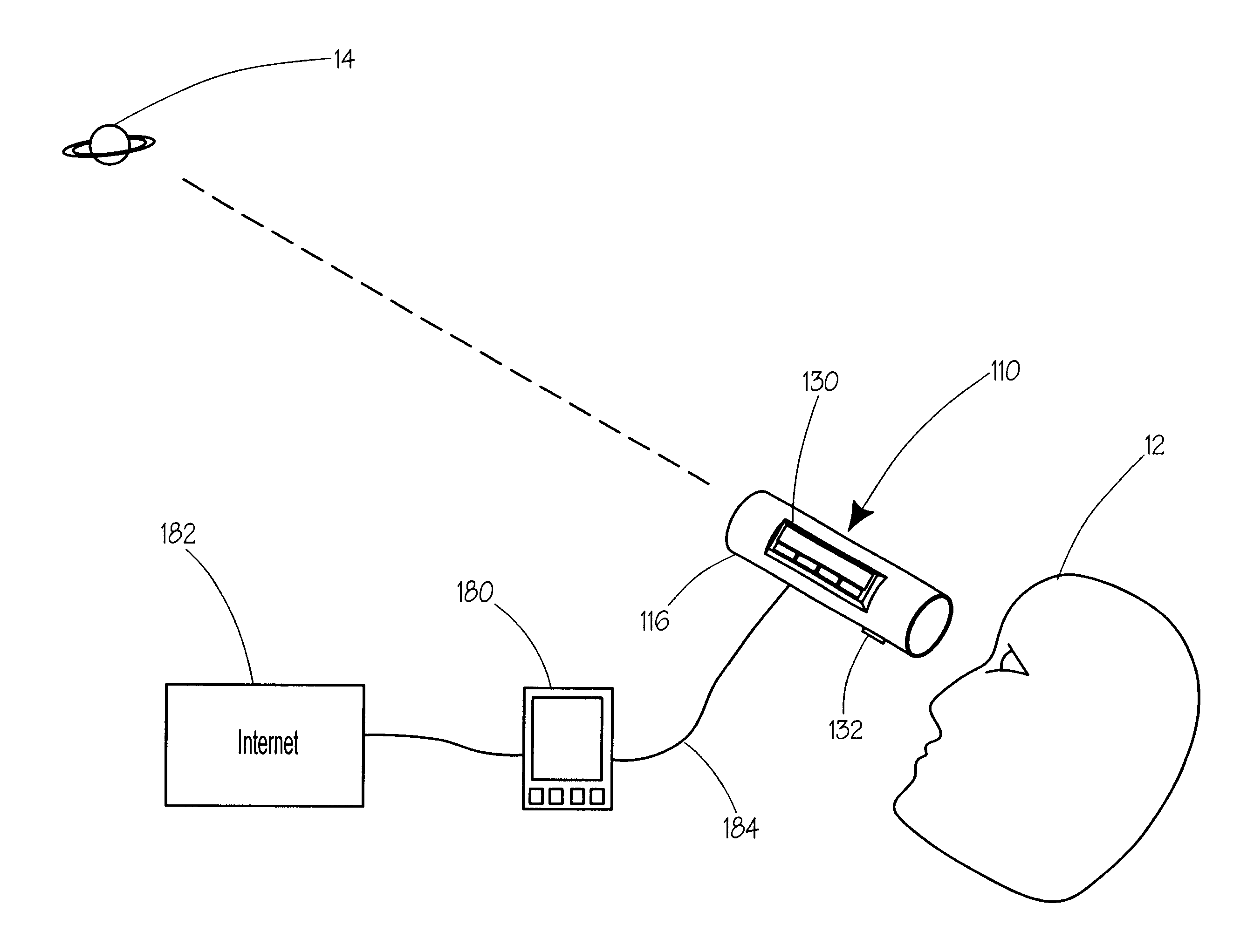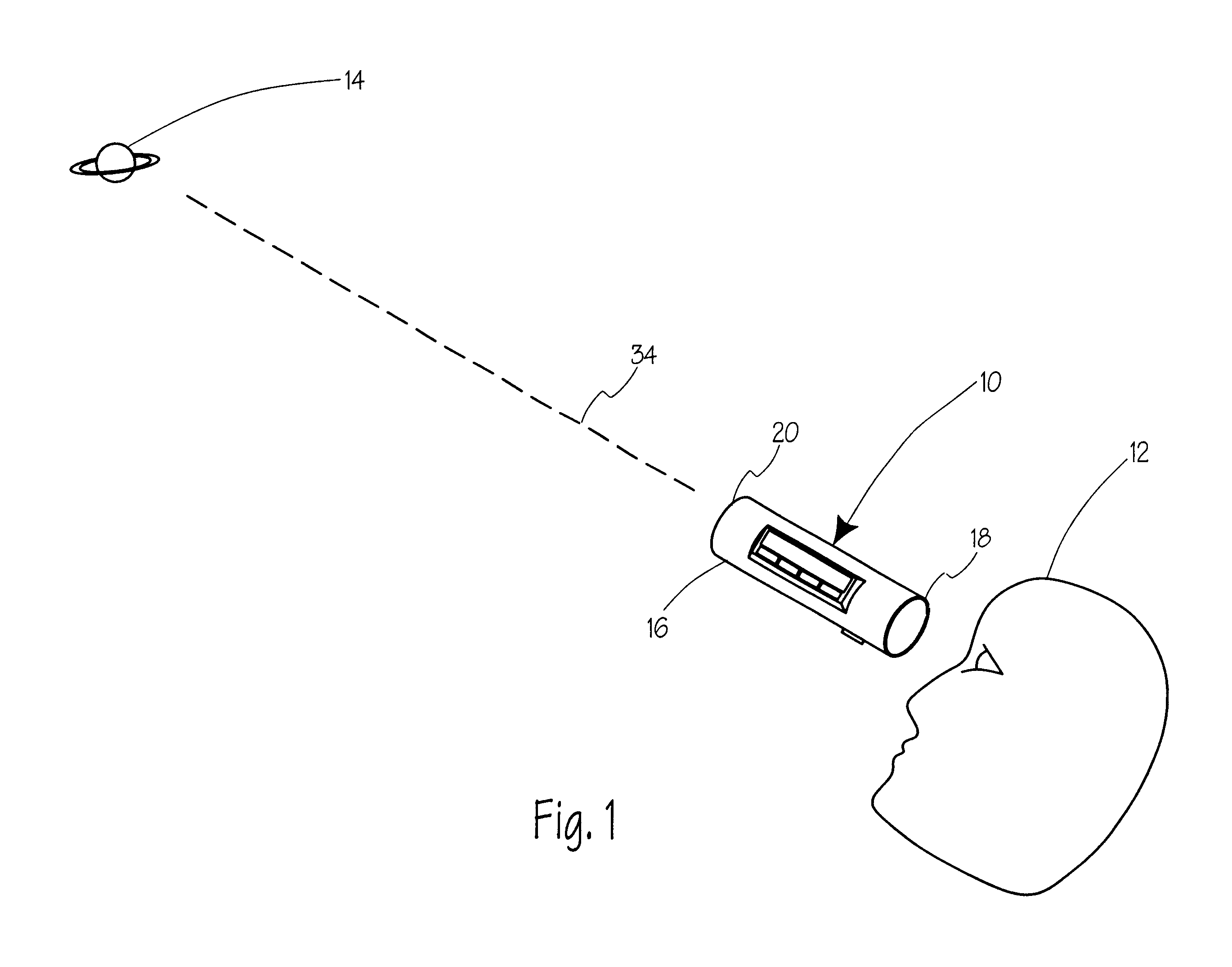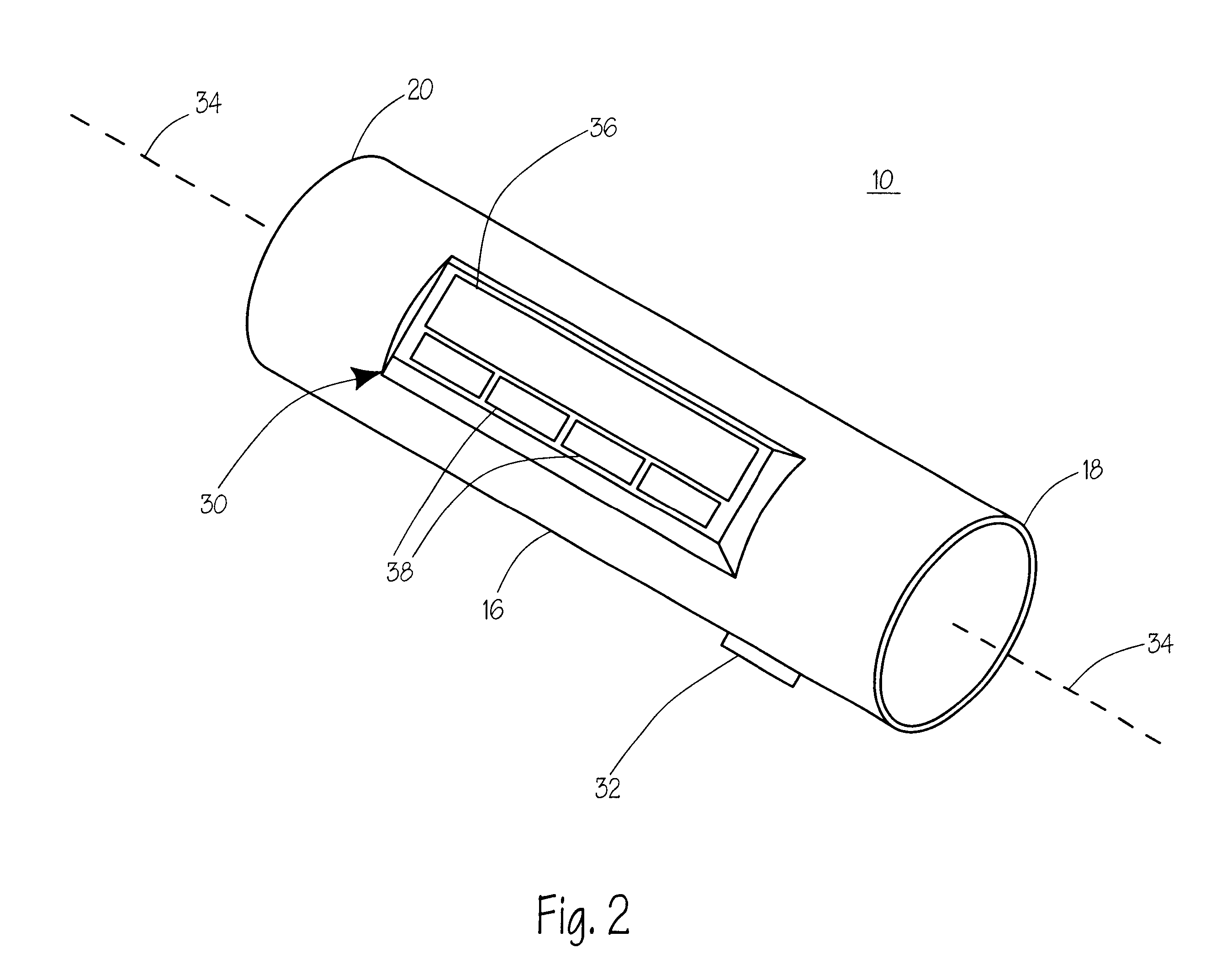Celestial object location device
a technology for locating devices and celestial objects, applied in the field of astronomy, can solve the problems of entanglement between the method and the desired celestial object, and the method proves rather difficult to locate the desired celestial object, and achieves the effect of simple use of the celestial object location devi
- Summary
- Abstract
- Description
- Claims
- Application Information
AI Technical Summary
Benefits of technology
Problems solved by technology
Method used
Image
Examples
Embodiment Construction
Referring now to the figures, wherein like reference numerals refer to like elements throughout the figures, and specifically to FIG. 1, a celestial object location device (COL device) 10 is being used by a user 12 to locate a celestial object 14. The COL device 10, according to the shown and a preferred embodiment of the invention, has a generally cylindrical housing 16 adapted to be hand-held. Other embodiments of the invention may have housings of other shapes and may or may not be hand-held. Non-limiting examples of such embodiments naturally include telescopes, binoculars, eyepieces, headpieces, and any means for viewing objects. Thus, different embodiments of the object location device can themselves magnify distant objects. In the case of a headpiece, a retinal location sensing device can be used to further determine in what direction the user's eye is pointed. Thus, the user can simply look at an object and the object locator will then identify what the user is looking at.
Th...
PUM
 Login to View More
Login to View More Abstract
Description
Claims
Application Information
 Login to View More
Login to View More - R&D
- Intellectual Property
- Life Sciences
- Materials
- Tech Scout
- Unparalleled Data Quality
- Higher Quality Content
- 60% Fewer Hallucinations
Browse by: Latest US Patents, China's latest patents, Technical Efficacy Thesaurus, Application Domain, Technology Topic, Popular Technical Reports.
© 2025 PatSnap. All rights reserved.Legal|Privacy policy|Modern Slavery Act Transparency Statement|Sitemap|About US| Contact US: help@patsnap.com



